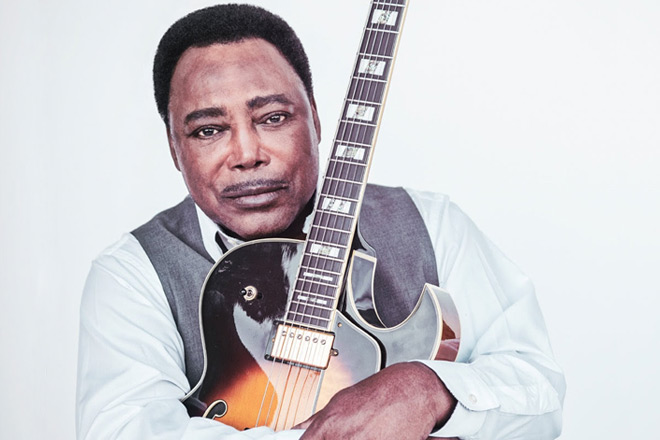
A career that has spanned over 5 decades with praise, Benson has won 10 Grammy Awards, but most of all captured the imagination of listeners with his astounding abilities as a songwriter, guitarist, vocalist, and live performer. Earning the highest honor for a Jazz artist as an NEA Jazz Master in 2009, and considered on the greatest Jazz guitarists of all-time, Benson is also greatly responsible for the genre’s mainstream popularization during the 1970s and 1980s. Melding styles with ease, and one of the most distinctive artists of our time, Benson continues his trend of excellence with his latest album, Walking to New Orleans.
His first studio album since 2013, and 45th overall, his latest effort honors Rock-n-Roll greatest Fats Domino as well as Chuck Berry, finding Benson once again bringing the notes on the page to life in a magical way. Energized and inspiring, Benson graciously took the time to chat about his career in music, the importance of having fun when performing, his experiences working with others, plus much more.
Cryptic Rock – You have been involved in music professionally for over six decades now. A winner of numerous Grammy Awards, you also have a long list of chart-topping records and continue to tour all over. First, briefly tell us, how would you describe your incredible journey in music?
George Benson – It’s a very big surprise even to me that I was involved in all of that, and throughout the effort, it’s still a surprise the way things turned out. I started out as a singer in Pittsburgh, little Georgie Benson working at night clubs at 7-years-old and I had my first recording at 10-years-old. At 11-years-old, my mother snatched me back from the recording industry and said, “That’s enough, he’s too young. It’s too much progress too early.” She took me out of the music business, and a few years later I got back in as a member of a singing group called The Aleairs. That was a great experience because it taught me a lot about rhythm, and I even did a little dancing with them. I had to play the guitar with them, because every guitar player we hired seemed to have a problem finding the kind of chords we were looking for. They said, “George, you play the guitar.” I said, “Wait a minute now! I can’t sing, dance, and play the guitar at the same time.” They said “Yes, you can,” so I tried it and accomplished it.
That was the first big trial of my career. But then the guitar began to get very popular because Rock-n-Roll was getting to be a gigantic music in the world; if you didn’t have a guitar in your hand, you were in trouble. (Laughs) They started calling me just to play guitar, and I was one of the few guitar players in Pittsburgh at the time. Even though I hadn’t mastered it to any real degree, they called me anyway and it forced me to start listening to other guitar players. That was the beginning for me.
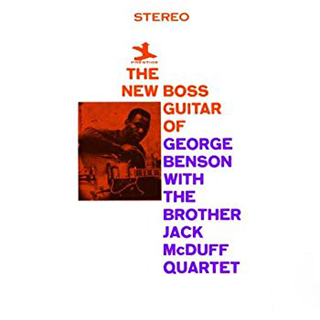
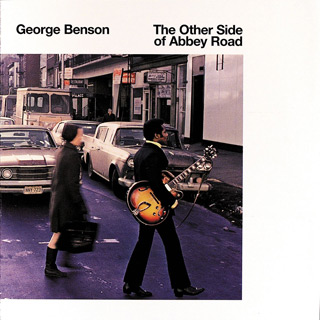
Cryptic Rock – Very interesting how it all came together, because you have been known as a fantastic guitarist, songwriter, and vocalist. All this in mind, what really has stood out about your work is your ability to shift styles from Jazz to R&B to Rock to Funk. How important is it to you have that diversity?
George Benson – It’s the world I’m dealing with: this is who they are. That’s what we have to deal with everyday. You go to a different part of the world to find their standards are different – they speak another language, including the musical language is different. I find the music begins from the rhythm stage: if you want to speak the same language, side with the rhythm, get the rhythm right; you are on the same page. The rest of it will come to you as you go along: you pick up new words every day, every time you have a conversation or every time you play with musicians who are playing that genre of music you learn something new.
I find what is the most important elements are feel good and sound good. The music has to feel good, and if it sounds good you have two great elements going for you already. If you happen to have good lyrics, if a song has words in it, that just adds to the success of the record and the communication of the record.
Cryptic Rock – The feel of music is essential. You recently released a new album entitled Walking to New Orleans where you do a list of great covers of classic Rock-n-Roll and R&B songs. Your first studio album since 2013, what inspired you to record Walking to New Orleans?
George Benson – First of all, we wanted to get away from the Smooth Jazz for a minute, and I wanted to try something different. Taking advantage of my international attention I have as an artist, I went to Europe to look for a record company that had distribution beginning in Europe. I knew the record was going in a different direction, all over the place. Not like in America; they don’t worry so much about that until they reach certain sales, then they start selling outside the United States.
By doing that I put myself in a good position. The record company came up with some very strange ideas to me at first. When they said they wanted to do a record of Chuck Berry and Fats Domino, I said, “Why?,” then I remembered why as I was thinking about their songs. They wrote some incredible songs: they were well-performed and honestly performed. They would tend to people’s everyday life, they were stories everybody could relate to. The more I looked into it the more viable the project became. I said, “Wow, this is something we should be doing!”
Now to interpret it in an honest way is a whole different story – the record label had the idea though. We went down to Nashville, Tennessee, where they have musicians galore, great musicians all over the place. You can’t miss if you go into the studio with musicians from every part of the world, you are going to come out with a great collection of music. We did that and had a great producer in Mr. Kevin Shirley. I had not known of him before until I looked up all of his success, and wow, deservedly so. He is a great producer and made it simple for me; I like simplistic. He gave me a lot of room to breathe and that was important to me also.
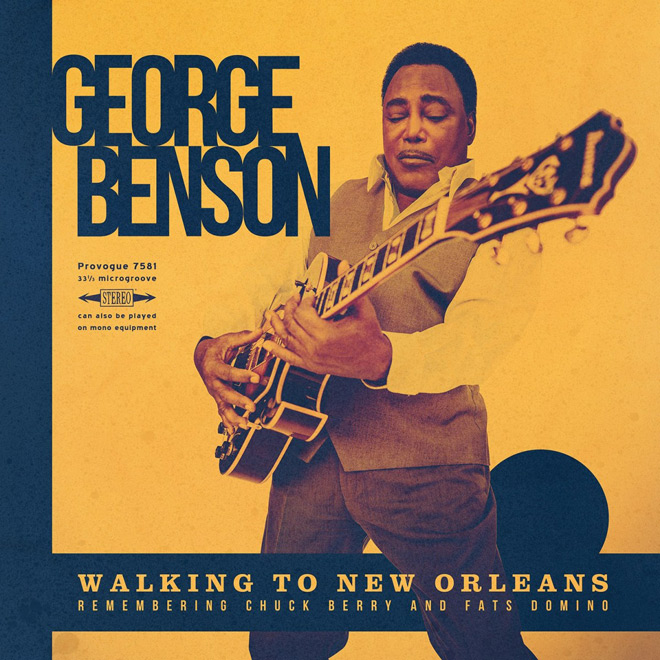
Cryptic Rock – The end result is great, these are great renditions with a lot of life. You have always done a great job of putting your own touch on any of the songs you have covered dating all the way to records like 1970’s The Other Side of Abbey Road. As a musician, what challenges do you face putting your own touch on previously-recorded songs?
George Benson – I think like an A&R man: I think the music we play has to communicate, because we are talking to a public. We are doing it through music, but it’s still conversation; it’s communication, I have to try and connect with them. I think like that – I don’t just think about playing notes and trying to be the hippest fellow, that’s already been done. You have Django Reinhardt, Art Tatum, and people like that, they’ve already proven the point. The best we can do is to fit somewhere in the ballpark, but music for me is fun: if it loses it’s fun, it has no real meaning for me and won’t come alive in my mind. I have to make it a part of who I am and it has to be something I really want to say in order for me to communicate to my audience. I’ve been trying to do that from bar one.
You mentioned one of my favorite albums, The Other Side of Abbey Road. When we did that it upset everything that I was doing. I had some good beginnings, was heading in the right direction, and everybody thought I was going to be a great Jazz guitar player, the successor to Wes Montgomery and things like that, but they didn’t know I was also a singer because I had not sang anything important. They never thought about me as a singer until we went in with these serious musicians, who were classically-trained, and the greatest Jazz players – Herbie Hancock, Ron Carter and those dudes – what a great rhythm section! Then I started singing, “Once there was a way to get back homeward,” and the guys in the group, their eyeballs said “What?”
I am very glad I made that record. It was not popular at first until Breezin’ (1976) came out years later. Then they went back and rediscovered The Other Side of Abbey Road. I’m so glad I recorded it because now I had a predecessor to what Breezin’ had accomplished, and that is what we were trying to accomplish years earlier.
Cryptic Rock – That is a fantastic story! It all worked out in the end. You do have some shows coming up, so can we expect you to be mixing some of the music from Walking to New Orleans into your sets?
George Benson – Most definitely, because everyone who hears them, that’s the first thing they say to me. The record has proceeded me and given people something to look forward to – so I have to live up to that. The more I listen to the record, the more I’m happy I made it. I’m always my biggest critic, because the record has to pass by me first before it goes out – once it goes out, you can’t take it back. (Laughs) I’m happy this record holds up. The public loves it and that was my main reason for recording it: to remind the public of how great these two artists were and why they still live in our minds and hearts. So yes, I will be doing it with my show.
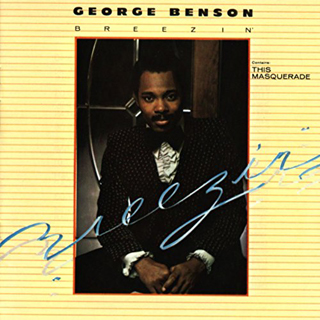
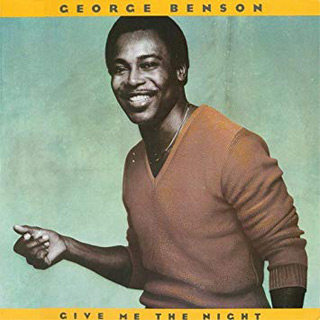
Cryptic Rock – That is great to hear. Beyond your solo work, you have also offered your talents to a long list of artists through the years, ranging from Miles Davis to Stevie Wonder to Mary J. Blige to Rod Stewart and so many more. What would you say are the most important things you have learned from these collaborations?
George Benson – Wow. First of all, I’m fortunate because there was a great collection of people. There are some you didn’t mention, but all of them are great. What I’ve learned from them is that every individual is very personal. When I think about the recordings I made with them, I think about the day we made them.
I think about what we were going through when we were standing in front of those microphones or when I was playing my guitar in back of them. I think about how they made me feel: they were the ones who inspired what I played on those particular dates, because it won’t happen like that again. There is only one Al Jarreau, and when he spoke his personality was so calm it suggested what comes next – so I tried to live up to that. I guess that’s true with all the artists I have worked with over the years. The privilege has been mine, and I hope they had the same kind of fun recording with me as I did with them.

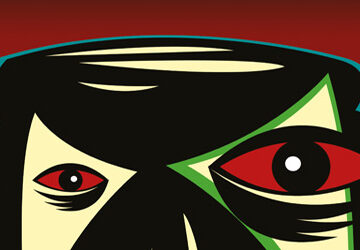



No comment